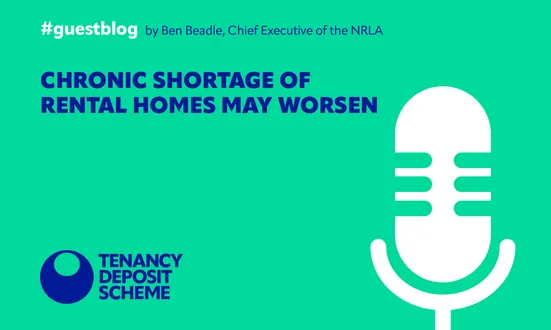When it comes to letting out a property, landlords are obviously concerned with how to protect their investment. Although everyone has heard horror stories about tenants trashing houses, stealing furniture and disappearing into the night leaving months of rent unpaid, the reality is that most tenancies are successful and without issue, and less than 1% of tenancies end in dispute. However, there are a few best practices landlords can use to protect themselves.
How to protect against potential damage/negligence
Deposit protection services are designed to protect the tenant’s deposit and the landlord’s investment. The starting point for this protection lies in the tenancy agreement. Ensure that your expectations and the tenant’s responsibilities are clearly outlined in the tenancy agreement as this will be the cornerstone of any argument you have regarding deposits and compensation.
While you cannot dictate lifestyle in your tenancy agreement (such as necessarily banning activities such as parties), you can require the tenant to maintain the property in the same condition as at the start of the tenancy (wear and tear excepted) and to repair any damage made during the tenancy. The best policy to protect your property is to encourage open communication with your tenants throughout the tenancy, and having a very thorough check-in/out and inventory report.
How to justify your claim against a tenant’s deposit
The burden of proof will always lie with the landlord; the money belongs to the tenant and is held by the landlord or the letting agent against the tenant’s obligations under the tenancy agreement. The starting point is, therefore, to show that the tenant had a contractual obligation and that they breached that obligation. For example, there should be a clause which states that the tenant should maintain the condition of the property, supported with a check-in/check-out report showing that the condition deteriorated beyond wear and tear.
Remember, most deposit deductions are not disputed by the tenant, but if dispute resolution is your only option, then ensure that you have ample evidence to support your claim. Another aspect to consider is the fairness of the claim itself. Our golden standard for alternative dispute resolution is that the claims be:
- Reasonable – the extent of your claim should be reasonable. This means not claiming for an entire new kitchen for one broken cupboard door, or not claiming for an entire carpet because of one small stain.
- Reasonable – the amount of money that you are claiming should be reasonable for that item. This means that asking for £5,000 to clean a carpet would be unreasonable. Essentially the amount should reflect an accurate cost.
- Reasoned – your claim must be reasoned. This means providing accurate evidence and a clear argument that will allow the adjudicator to clearly see that damage/negligence has occurred and the value of repairing/replacing.
The onus of proof lies with the landlord, as they must prove that:
- They have suffered a loss;
- This was caused by the tenant or someone they were responsible for;
- The tenancy agreement permits this loss to be recovered from the tenant’s deposit;
- They have evidence that allows the amount of loss to be worked out in monetary terms (‘quantified’ in legal parlance)
Landlords should also be aware that adjudicators will not allow ‘betterment’ meaning that a claim may be rejected, or the amount adjusted, if they feel that the award requested would put the landlord in a better position than they would have been in, had the damage/negligence not occurred.
When should I start to gather evidence?
Being prepared from before the start of the tenancy will put you in good stead with future disputes, and not just for adjudication purposes. Most disputes can be resolved by the parties themselves, so having clear information about the condition of the property at the start and end of the tenancy, and sharing that information with the tenant(s), will go a long way to getting the tenant’s agreement and avoiding the disputes process.
Fostering a good relationship is priceless when it comes to protecting your investment. TDS strongly believes that communication is the key to successful tenancies, however having a carefully crafted tenancy agreement is also key. You can find more useful articles for landlords in our blog, such as our policy briefing on the latest right to rent legislation, and best practices for utility bills.
About TDS
The Tenancy Deposit Scheme is part of The Dispute Service (TDS), the largest tenancy deposit protection (by value) and resolution service provider in the UK making life easier for tens of thousands of agents, landlords, developers, and millions of tenants and homebuyers.
Our award-winning customer service is highly rated on both Trustpilot and Google, and we’re backed by the NRLA.
We offer free deposit protection in our Custodial scheme, and the lowest rates for landlords in our Insured scheme.

Other news stories


